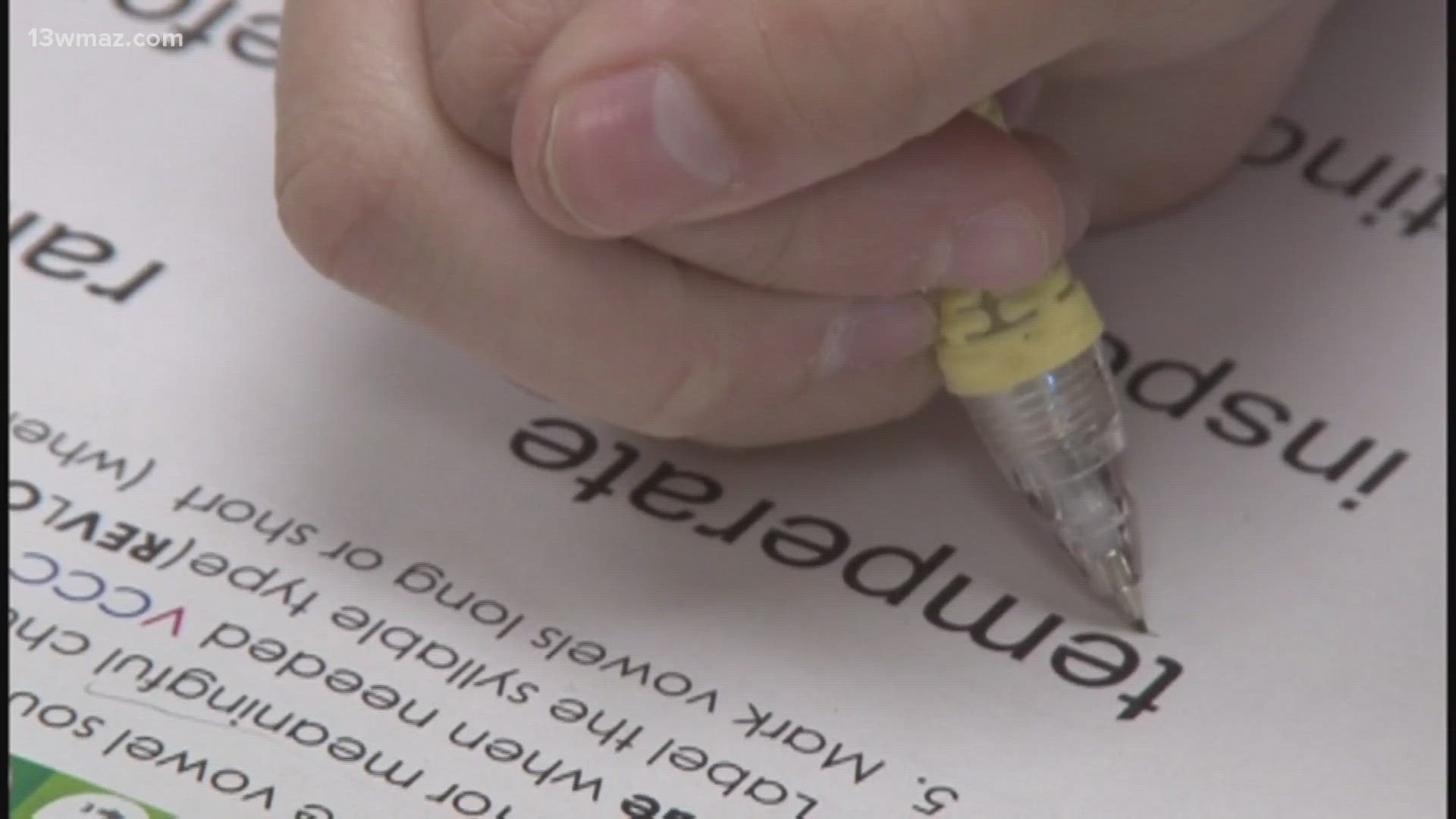MACON, Ga. — Dyslexia is something many kids may be ashamed of...especially if they don't know what's going on or aren't getting the help they need.
A new resource is coming to Central Georgia, focused on helping students with this learning challenge.
"I would have my classmates and my friends and they would be excelling into other things while I would be stuck at on specific thing," says Gigi Griset.
10 year old Griset says she loves school, but from an early age she struggled with some parts of learning. Those struggles started to affect her self esteem.
"I would mess up a lot and I felt like everyone did not like me or was judging me in their head," says Gigi.
Even with countless hours of tutoring and studying after school, Gigi's mom Holley could see something else was going on. So she signed Gigi up for testing.
"The first test was done October 2019 and it was conclusive she was diagnosed with dyslexia," says Holley.
"I was relieved that I knew what was happening," says Gigi.
Holley wasted no time figuring out what was best for her daughter. She enrolled Gigi in the Schenck school in Atlanta, which aims to build a solid educational foundation for students with dyslexia. She says that Gigi soared.
"You know something is working here that we wish we could spread everywhere," says Holley.
Outside of Atlanta, there aren't many schools for dyslexic kids to receive the tools and training they need. In the fall of 2024, Mercer University says that will start to change.
"Behind me is the site where the Roberts Academy at Mercer University will be built," says Tom Koballa, Mercer's Dean of the College of Education.
The academy will be a transitional school for children with dyslexia in grades 2 through 5. They plan for classes to have less than 12 students.
Koballa says the teachers will utilize the Orton-Gillingham approach, which is a multi sensory, structured, and diagnostic way to teach those with dyslexia.
"So they can be more adapt and prepared to address their own challenges in learning," says Koballa.
Koballa says the tuition will be less than $10,000 because they want as many dyslexic kids to be able come to the school as possible - regardless of their family's finances.
"We want to have spaces in each of our classes where children from families without means are able to benefit from the experience at no cost," says Koballa.
Roberts Academy will be similar to the Schenck school that Gigi attends. After starting her journey there several years ago, she believes she now has the tools she needs to be successful in the future with her superpower.
"When I go into my school it will be easier for me to learn what other people without dyslexia are learning," says Gigi.
Koballa says they plan to work with public and independent school partners to see how they're identifying dyslexic kids so as many kids as possible who need help will get it.
The academy will also address the learning needs of students in all areas of curriculum, so subjects like math, language arts, science and social studies will be included.

